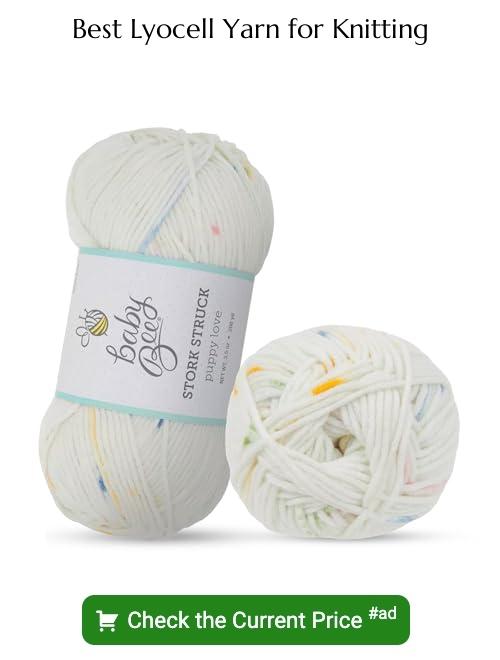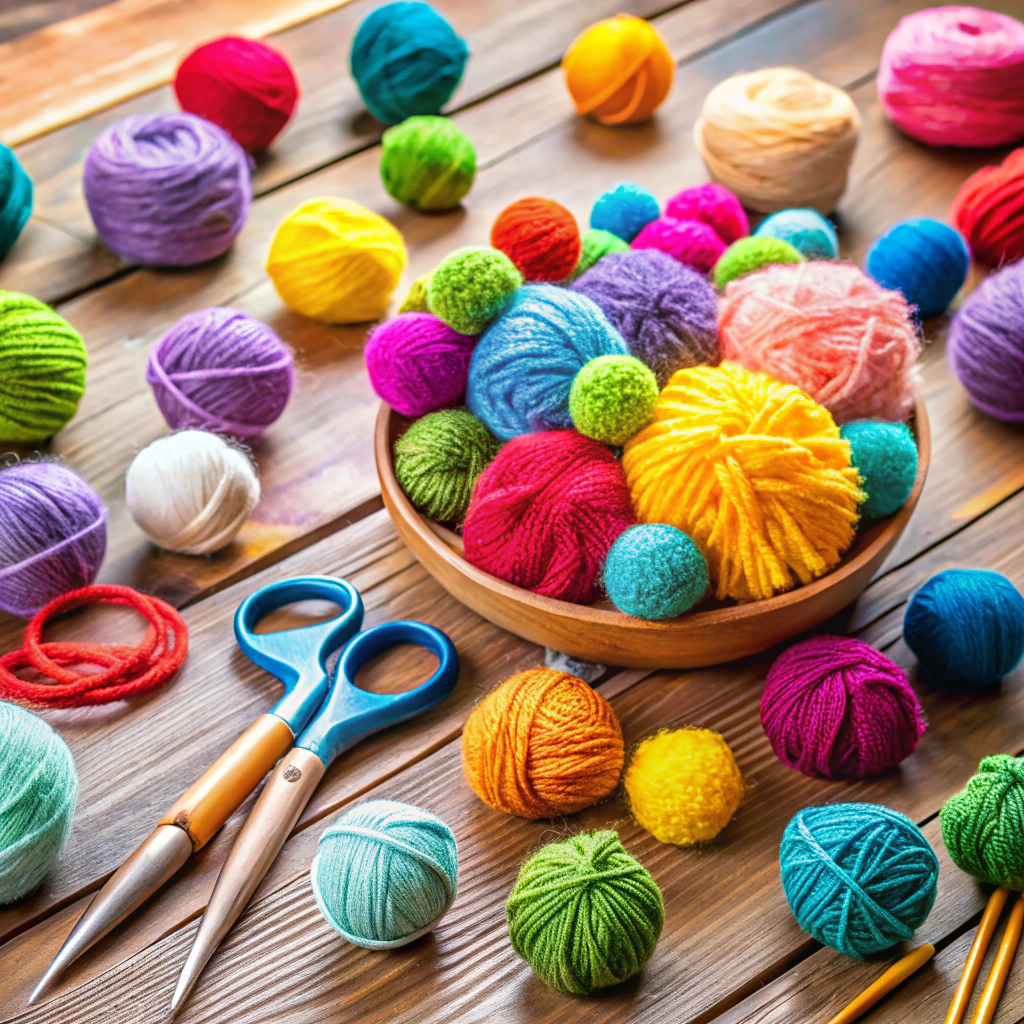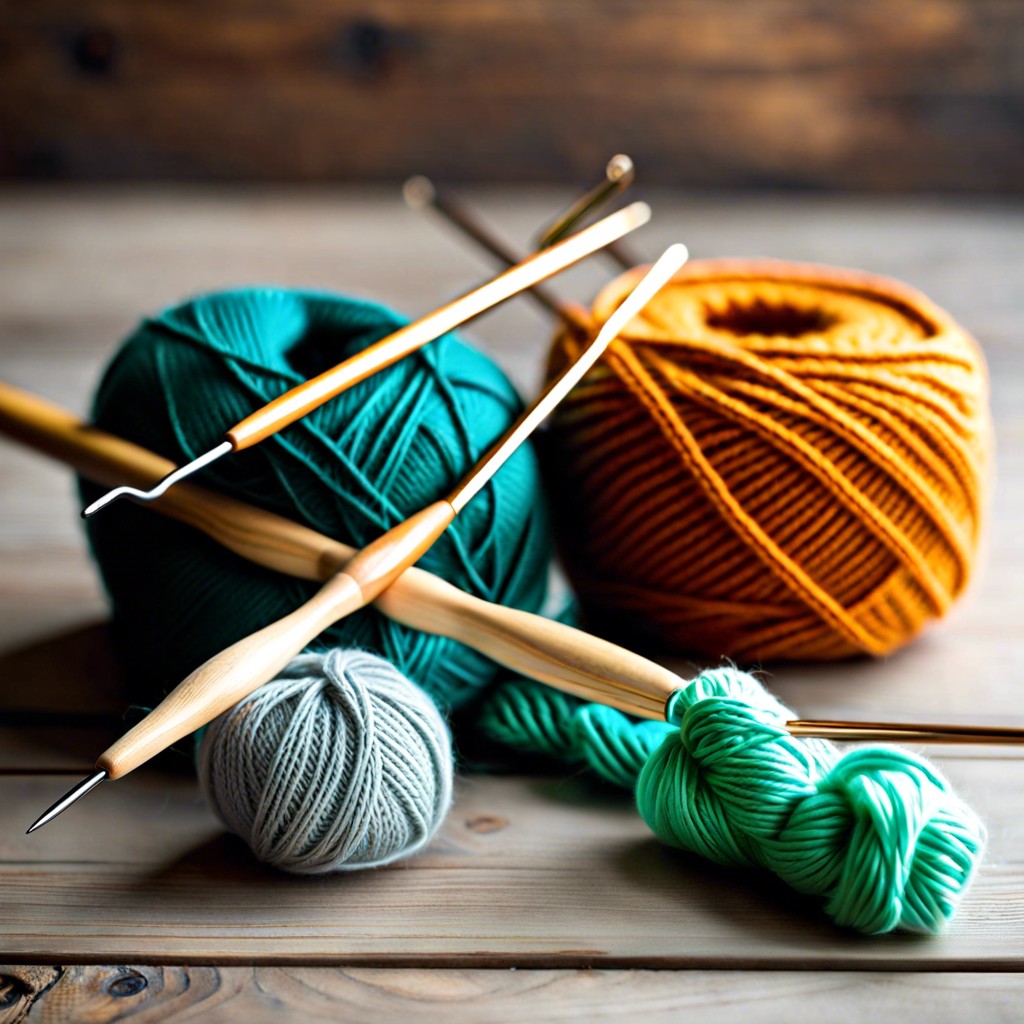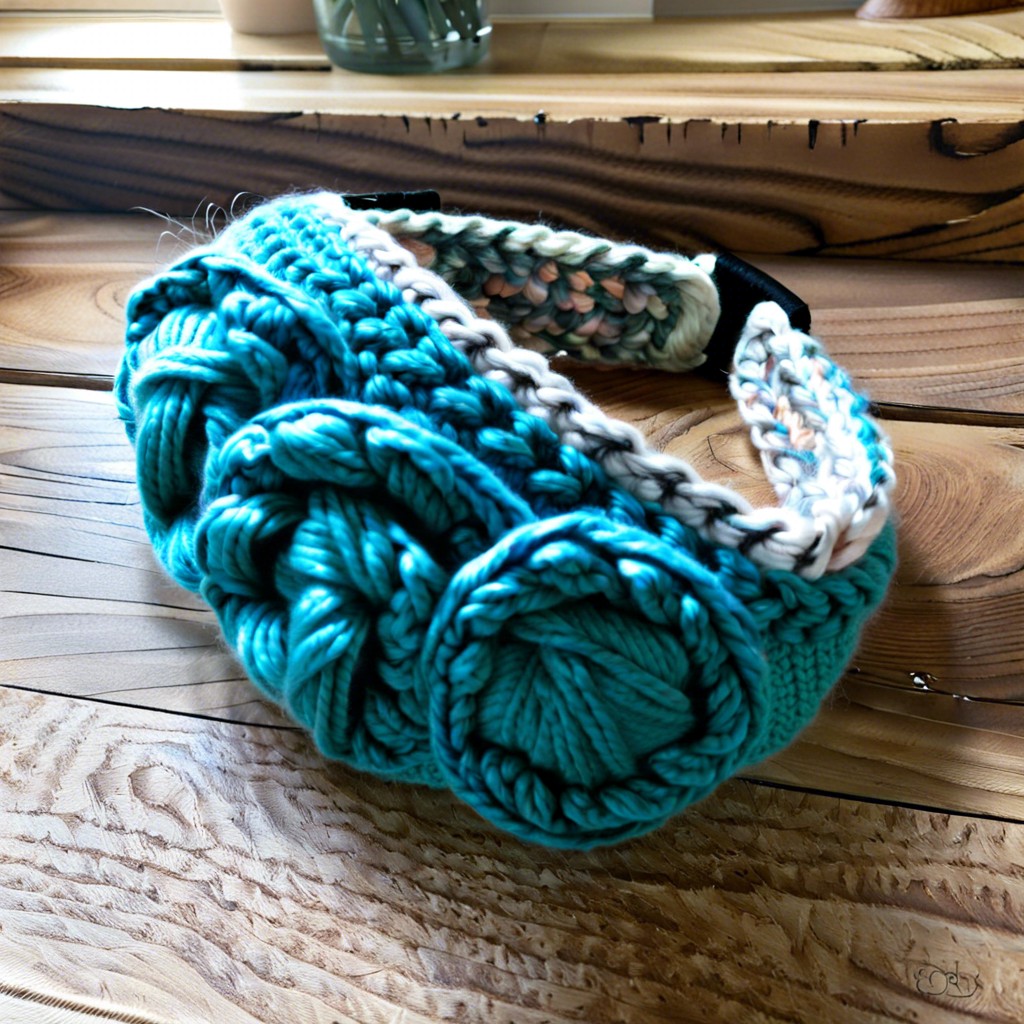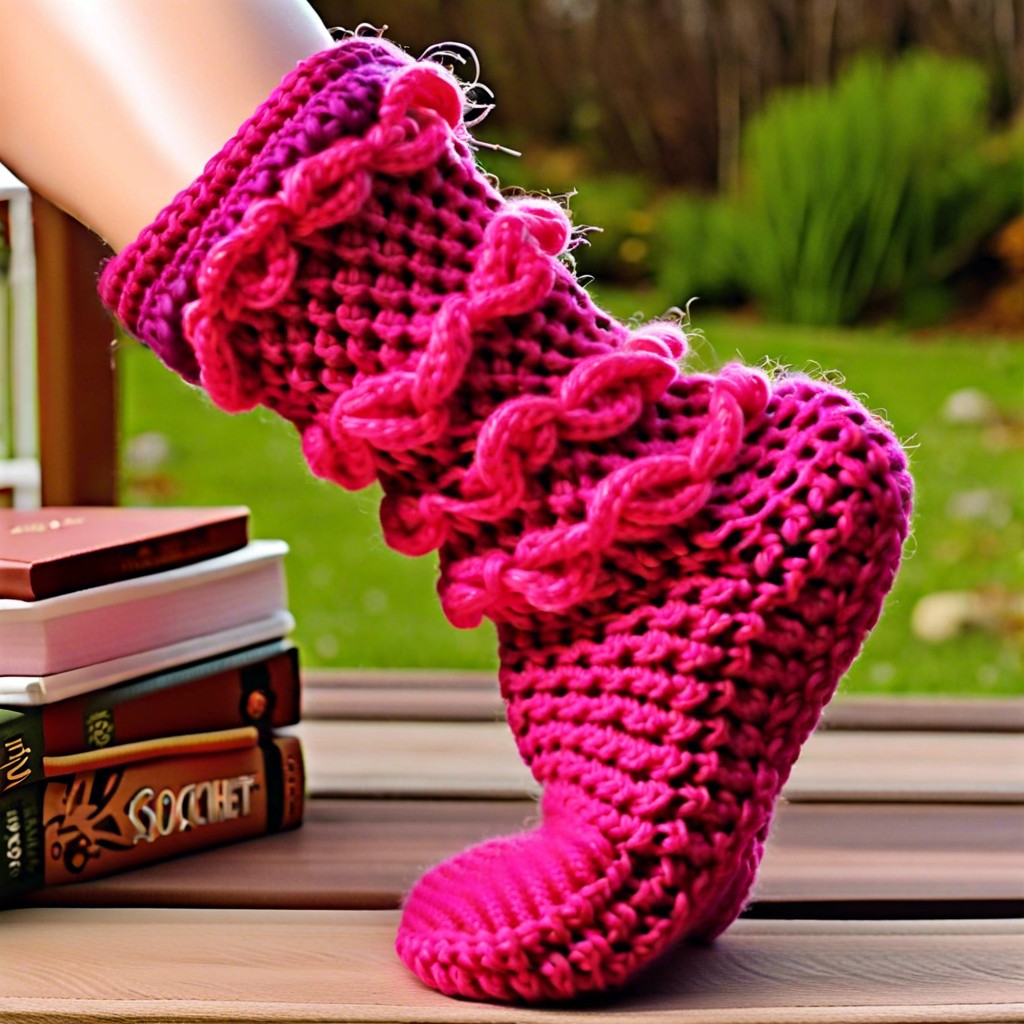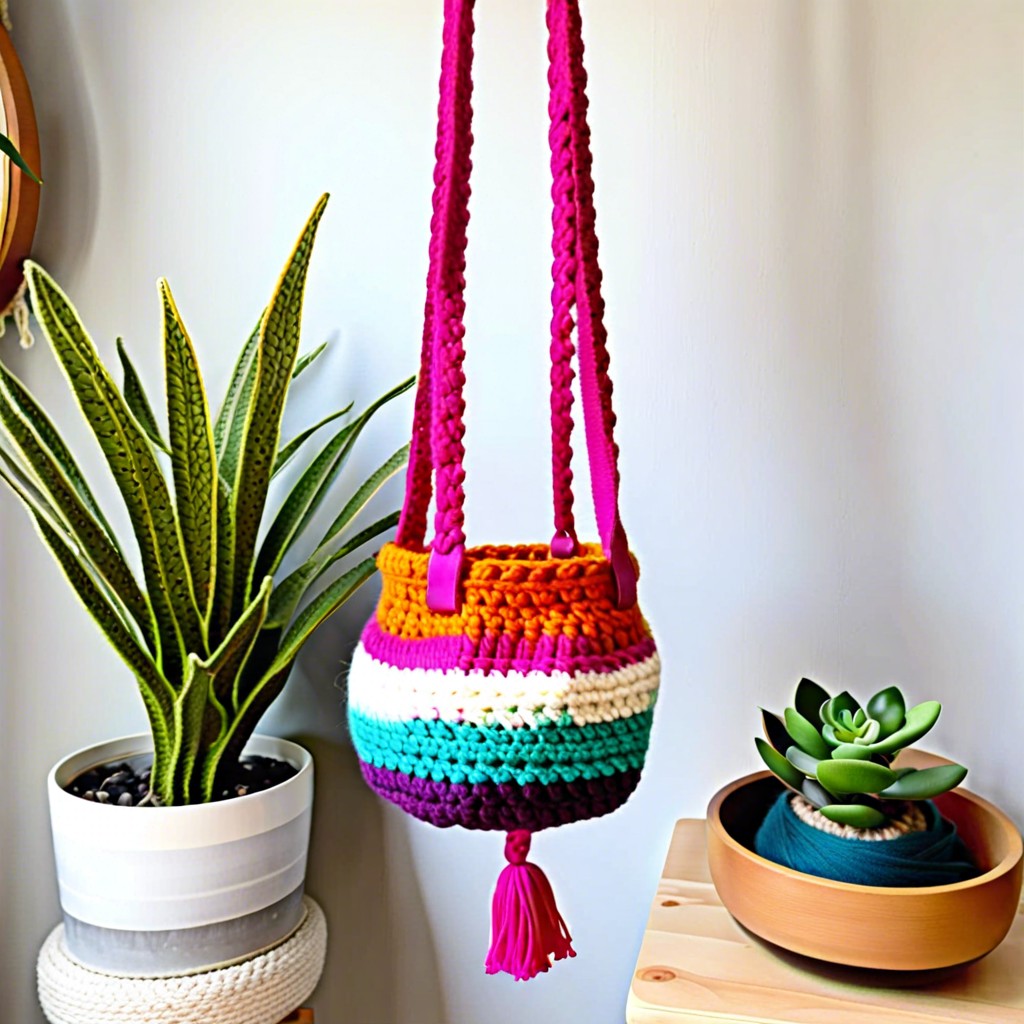Lyocell yarn is a sustainable fiber derived from wood pulp, known for its silky texture, moisture-wicking abilities and exceptional durability.
Lyocell yarn is a type of fiber obtained from wood pulp, specifically from eucalyptus trees, making it a sustainable and eco-friendly option for knitters and crocheters. Renowned for its softness, strength, and excellent moisture management, it’s a versatile choice for various projects.
This article will delve into the properties of lyocell yarn, its uses, benefits, and how to care for it, providing a comprehensive understanding of this unique fiber.
Key takeaways:
- Lyocell yarn is a sustainable fiber derived from wood pulp.
- It has properties such as softness, strength, moisture management.
- Lyocell yarn is biodegradable and has a closed-loop production process.
- Its characteristics include breathability, strength, moisture absorption, smoothness, and versatility.
- Lyocell yarn is used for clothing, crafting, medical textiles, and industrial applications.
Definition and Production of Lyocell Yarn
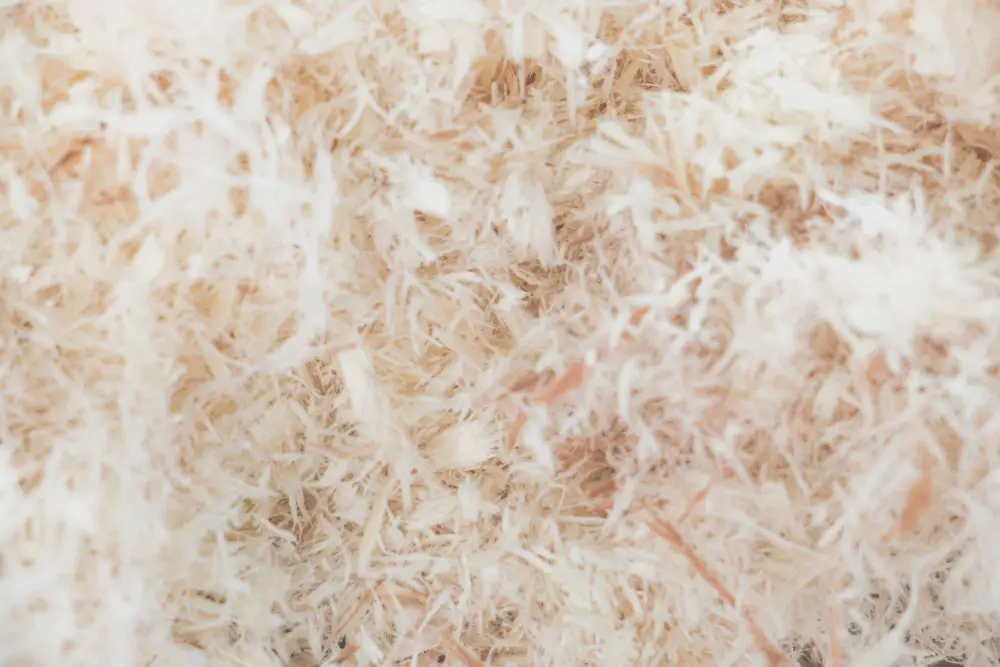
Lyocell yarn is crafted from wood pulp cellulose, primarily from eucalyptus and other hardwood trees, making it a plant-based fiber. The manufacturing process involves dissolving the wood pulp in a solvent to produce a thick solution. This solution is then pushed through small holes to create fibers, which are subsequently dried, rolled, and spun into the soft, silken yarn we call lyocell.
The entire process takes place in a closed-loop system, meaning the solvent is continually recycled, resulting in minimal environmental waste.
Sustainability of Lyocell Yarn
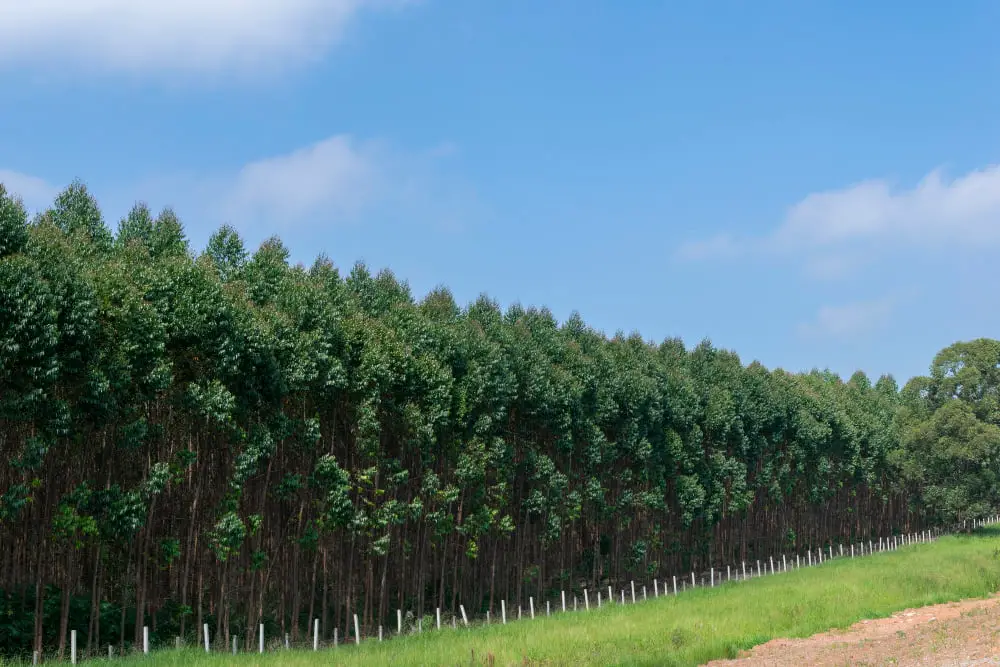
Lyocell yarn’s sustainability derives from its production process, making it a favorable choice for eco-conscious crafters. Produced from wood pulp obtained from sustainable tree farms, these trees are grown expressly for production, and thus, no old growth forests are harmed. Moreover, the processing method for Lyocell employs a closed-loop system. This system recovers and reuses up to 99% of the solvent used, appreciably reducing harmful effluents into the environment. The yarn is also biodegradable, adding to its eco-friendly credentials.
In terms of energy usage, it’s crucial to remember that the manufacture of Lyocell requires less energy and water than the production of cotton. Additionally, no pesticides or irrigation systems are necessitated in the tree farms, alluding to a smaller ecological footprint.
Crafters can promote sustainability by choosing Lyocell yarn for their projects. It’s readily available for purchase in physical craft stores and various online platforms, providing an easily accessible, planet-friendly alternative for conscientious creators. Opting for this sustainable yarn not only reduces harmful impact on the environment, but also supports industries committed to sustainable practices.
Characteristics of Lyocell Yarn
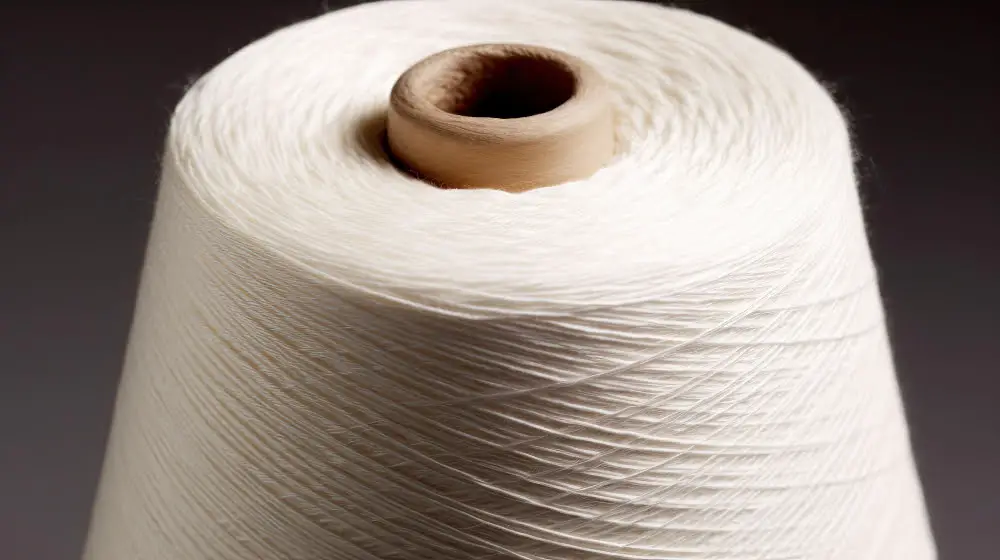
Lyocell yarn boasts a unique set of characteristics that sets it apart in the world of fiber crafts:
Breathability: Similar to cotton, it allows air to circulate freely, making it ideal for summer wearables and lightweight home decor.
Strength: Lyocell is remarkably tough when dry or wet, extending the lifespan of the items made from it.
Moisture Absorption: It has superior wicking abilities, absorbing and releasing moisture efficiently, reducing the build-up of bacteria.
Smoothness: Unlike many other yarns, Lyocell has a silky-smooth texture, making it pleasing to the touch, and kinder to sensitive skin.
Versatility: Its availability in various weights and colors makes it adaptable for different types of knitting and crocheting projects.
Biodegradability: As a cellulosic yarn, Lyocell is biodegradable, aligning with the increasing demand for sustainable crafting materials.
Dyeability: Lyocell’s high absorbency also means it takes dye very well, resulting in vibrant, long-lasting colors.
Shrink Resistance: It maintains its shape well over time, making for durable finished pieces that withstand regular use and washing.
Advantages and Disadvantages of Lyocell Yarn
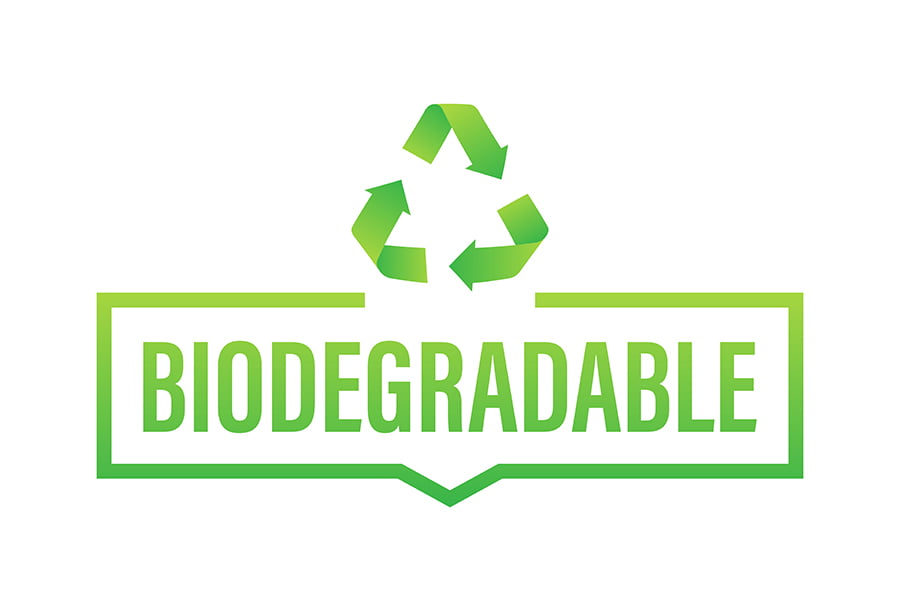
Lyocell yarn offers several advantages that make it suitable for various applications. Firstly, it’s biodegradable, which makes it a sustainable choice in the era of environmental awareness. Its smooth surface results in a lustrous shine and soft texture, providing comfort and appeal when used in clothing. It also effectively manages moisture, absorbing and releasing it quickly, which makes garments created from this yarn ideal for hot and humid climates.
Lyocell’s excellent drape quality further enhances its application in the fashion industry. The fabric made from it flows well, making it a desirable choice for making dresses, skirts, and other flowy attire. Its high tensile strength, which means it can withstand significant pulling force, also improves its durability.
However, lyocell yarn is not without its disadvantages. It can have a higher price point compared to more traditional yarns, due to its complex production process. Additionally, while it boasts durability, garments made from lyocell can be prone to shrinking during the first wash and may require special care instructions to maintain their original shape and size. Moreover, its softer feel may not be preferable for crafting projects that require more structure, like some home decor items.
Uses of Lyocell Yarn
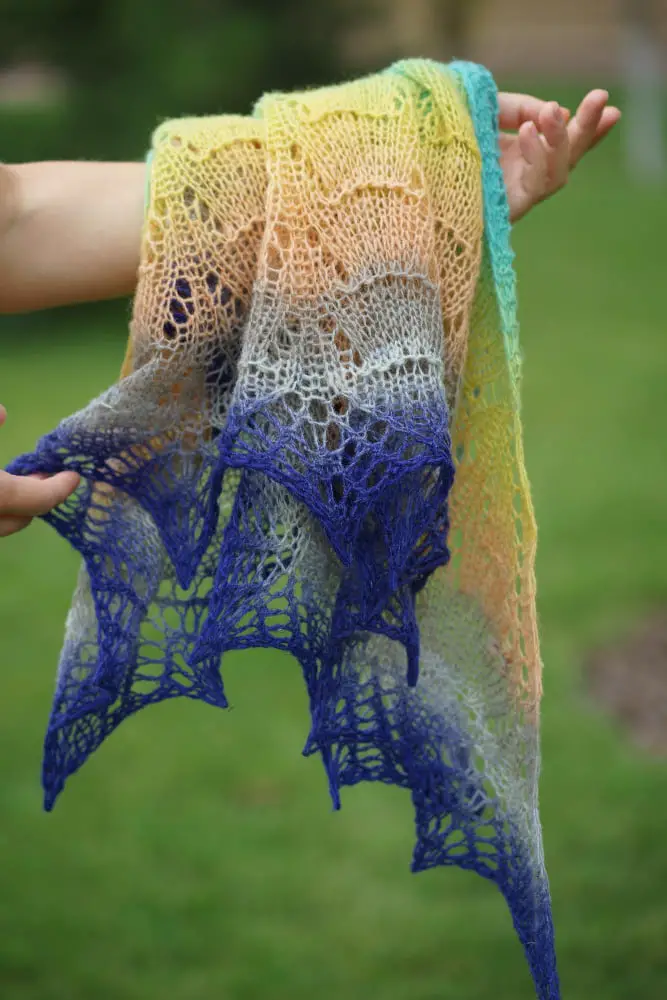
In the world of textiles, lyocell yarn proves its versatility through a vast array of applications. It’s commonly used in apparels, particularly those necessitating light and breathable materials. Summer wears, undergarments, and bedding fabrics often employ lyocell because of its effective moisture management.
Yarn artists, too, find this material useful. The drape quality of lyocell yarn makes it excellent for knitting or crocheting lightweight projects, like shawls or summer tops. It’s also blended well with other materials including cotton or wool for added strength and resiliency, encompassing an even broader range of knitting or crocheting projects.
Moreover, its absorbent nature allows it to take in and retain color beautifully, thus making dyed fabrics and garments particularly vibrant. This is why dyers often prefer to work with lyocell.
Beyond fashion and craft, lyocell also has applications in medical textiles. Its capabilities in moisture management and breathability, paired with its hypoallergenic property, make it a fitting choice for wound dressings and medical garments.
Last but not least, due to its strength in both dry and wet conditions, it rings a bell in industrial textiles for manufacturing items like conveyor belts or specialty papers.
Comparison of Lyocell Yarn With Other Yarn Materials
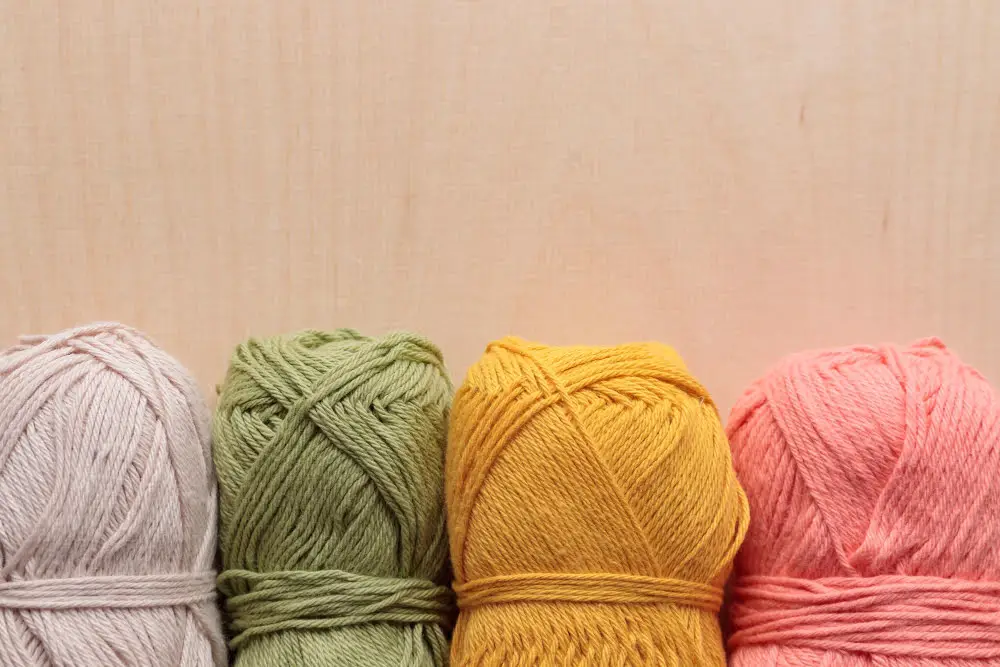
When it comes to texture and durability, lyocell competes well with other types of yarn. Like cotton, it boasts a smooth, soft texture, but it surpasses cotton in its ability to absorb moisture, making it a great choice for summer wear.
Lyocell also stands toe-to-toe with wool in terms of its warming capacity. However, lyocell is lighter and more breathable, giving it the edge in comfort, especially in warmer weather.
Comparing it to synthetics like polyester, lyocell is more environmentally friendly. It is made through an eco-friendly process and is biodegradable. Yet, like synthetic fibers, lyocell is strong and resistant to wrinkles.
In terms of luxury fibers such as silk, lyocell presents a budget-friendly alternative. It has an elegant sheen and a smooth texture comparable to silk, but it is more durable and easier to maintain.
Remember, as with all yarn types, certain projects might lend themselves better to one material over another, so it is important to consider the specific requirements of your project before settling on a yarn. Lyocell yarn’s unique blend of characteristics makes it a versatile option in a variety of instances.
Cost of Lyocell Yarn

Despite being a high-quality option, lyocell yarn tends to be more expensive than many traditional fibers. Its price point is influenced by a few factors:
Lyocell production involves high-tech processes and eco-friendly elements, contributing to a higher cost. As lyocell is a man-made fiber made from natural sources, it requires advanced technology during production, pushing up the price.
Additionally, lyocell’s unique features such as brilliance, texture, and comfort also justify its cost. These characteristics often result in a higher market demand, which can drive up the price.
Moreover, the cost may vary based on lyocell’s blend with other materials. If the lyocell yarn is blended with more luxurious or uncommon materials, the price is likely to be higher.
Also, branded yarns generally come with a higher price tag. The reputation, quality guarantee, and after-sales service of famous brands can make their lyocell yarns costlier.
Lastly, production ethics can impact the price. Companies that promote fair wages and positive working conditions may reflect these ethics in a somewhat higher product price.
These factors combine to influence the cost of lyocell yarn, though it’s important to remember that prices can vary depending on location, store, and specific brand considerations.
FAQ
What is lyocell yarn good for?
Lyocell yarn, owing to its high breathability, silky texture, and exceptional moisture-wicking properties, is ideal for crafting lightweight, comfortable, and fresh summer clothing.
Is lyocell better than cotton?
Lyocell is considered superior to cotton due to its increased durability, longer lifespan, and superior breathability.
Is lyocell yarn stretchy?
Yes, lyocell yarn is notably stretchy and retains its flexibility for an extended duration, ensuring comfort and durability without concern for bagging or dropping.
How is Lyocell yarn manufactured?
Lyocell yarn is manufactured through a chemical process where wood pulp is dissolved in a non-toxic organic solvent, then extruded through small holes to form fibers, which are then spun into yarn.
What are the environmental impacts of producing Lyocell yarn?
The production of Lyocell yarn, a cellulose-based product, has a favorable environmental impact as it uses a closed-loop process reducing waste and emissions, involves less energy and water usage compared to other fibers, and is made from sustainably sourced trees.
Does Lyocell yarn have any unique care requirements?
Lyocell yarn requires gentle machine wash or hand wash in cool water and should be laid flat to air dry.
